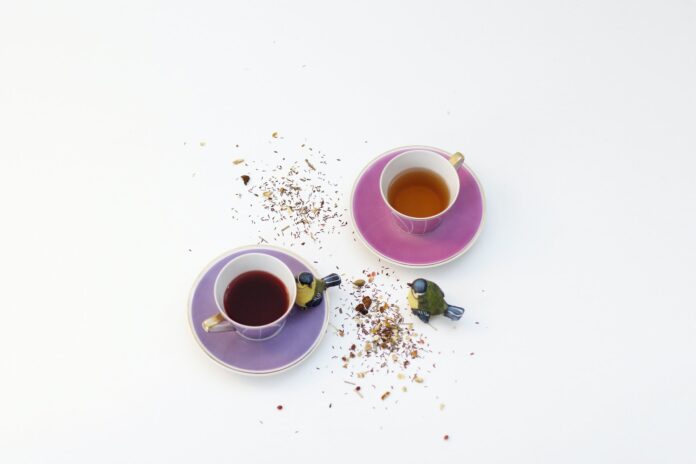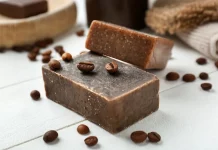Coffee vs Tea: Coffee and tea are two of the most popular drinks in the world. While many people rely on them for a daily caffeine boost, you might also wonder about their health benefits or if one of these options is better for you than the other.
Both coffee and tea come from the same source: plants. Coffee beans come from bushes, while tea leaves are harvested from the evergreen shrub Camellia sinensis, which is native to Asia.
Processing determines whether they end up as a bright cup of green tea or a rich mug of black coffee.
Despite some differences in preparation, both beverages have plenty of antioxidants and provide health benefits.
Coffee vs tea and which one to go for is a question that cannot be answered easily. In short, it depends on what you want out of your drink—and what kind of side effects you’re willing to put up with. Let’s explore how each beverage affects your health so that you can decide which one is right for you!
Coffee and Tea are Made from the Leaves of a Plant
Arabica and robusta coffee trees grow in tropical climates around the world, and their seeds are used to make coffee. The tea we drink is made from the leaves of a tropical plant called Camellia sinensis.
The chemicals in these plants have been used as medicine for thousands of years because they can affect our moods and overall health.
Coffee Beans and Tea Leaves Are Both Full of Antioxidants
Coffee beans and tea leaves both have a lot of antioxidants. Antioxidants are molecules that protect your cells from damage by free radicals. Free radicals are unstable molecules produced when exercising, breathing, or even eating certain foods. When free radicals attack your cells, they can cause inflammation, which has been linked to heart disease and cancer.
Antioxidants like those found in coffee beans or tea leaves can help prevent this damage by neutralizing free radicals before they cause any harm to your body.
When choosing between coffee and tea for their antioxidant content, there isn’t much difference between the two drinks: Both contain similar amounts of polyphenols (an antioxidant group). The difference: Decaffeinated green or black teas contain higher levels of polyphenols than caffeinated versions.
Tea Contains Less Caffeine than Coffee
Coffee has more caffeine than tea—about twice as much (80 mg in 8 oz. of coffee vs. 40 mg in 8 oz. of green or black tea). That doesn’t mean that you should avoid caffeine if you’re trying to cut down on your coffee intake, though.
For example, energy drinks contain about 100 mg per 8 oz. serving, and colas have about 50 mg per 12-oz can. So, switching from those beverages to an equivalent amount of brewed coffee every day would leave you with only 20–40% less caffeine overall.
Caffeine Can Help Your Brain Function Better and Make You Feel More Awake
Caffeine can help your brain function better and make you feel more awake. This is because caffeine actually increases blood flow to the brain, which helps increase alertness. It also increases the central nervous system’s activity and raises heart rate and blood pressure.
This is why many people drink coffee in the morning before work or tea in the afternoon on their way home from work—it helps them stay awake!
Coffee Can Contribute to Stomach Upset, Anxiety, and Headaches
Coffee is a diuretic and can make you dehydrated. The caffeine in coffee can also cause sleeplessness or interrupted sleep. It may lead to insomnia because it affects the neurotransmitters in your brain that are related to sleep regulation.
Coffee can be addictive; when you stop drinking it cold turkey, many people experience withdrawal symptoms such as headaches, fatigue, and depression which may last several days after giving up the habit.
Antioxidants in Tea May Lower Stress, Improve Cognitive Abilities and Protect Brain Cells from Damage
Tea is an excellent source of antioxidants, which are good for our bodies. Studies have shown that antioxidants can help prevent cancer, cardiovascular disease, Alzheimer’s disease, and Parkinson’s disease.
Antioxidants can also lower the risk of developing other chronic diseases such as heart disease and stroke by reducing inflammation in the body.
Antioxidants in Tea May Help Prevent Cardiovascular Disease
In addition to LDL cholesterol, oxidized LDL cholesterol can also contribute to plaque formation in the arteries and heart disease. Oxidized LDL cholesterol are more likely to clog up your arteries than non-oxidized LDL and lead to heart attack or stroke.
The good news? Research suggests that antioxidants can help prevent the oxidation of LDL cholesterol, which may help prevent cardiovascular disease. Tea contains antioxidants, including polyphenols and catechins. Tea comprises of these two groups of compounds. Research shows that they may help fight cardiovascular disease by reducing the oxidation of bad cholesterol.
Tea is Free of Calories and Sugar
Tea has been linked to improved physical health, and it has the edge when it comes to weight loss. A 2017 meta-analysis found that consuming caffeine boosts metabolism by up to 3%. This makes sense since caffeine has been shown to increase energy levels and improve mental focus.
But it’s also important to note that drinking a cup of tea won’t likely burn as many calories as drinking a cup of coffee would. Moreover, both beverages contain antioxidants like catechins that may help protect against various diseases, including cancer.
Final Verdict: Tea Has More Health Benefits than Coffee
Coffee vs tea is a long debate. Both coffee and tea can have positive health effects, but it depends on what you like better. Coffee is a superb source of caffeine, which may boost metabolism and help you lose weight. On the other hand, tea may help prevent Parkinson’s disease and dementia while reducing inflammation in your body.
Caffeinated beverages are also high in sugar content. Both drinks have about 4 grams per 8 oz. cup. If you’re watching your blood sugar levels for any reason, it’s best to choose the one with fewer calories.








